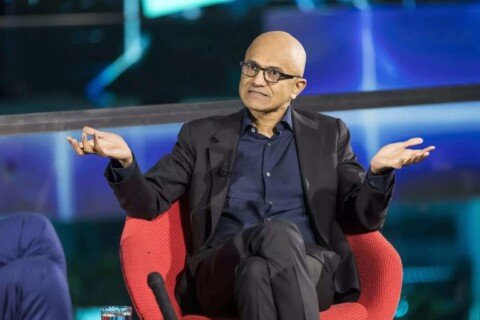Saudi Arabia’s ambitious Neom megaproject, a multi-trillion-dollar initiative to develop a landmass the size of Massachusetts, has undergone a major leadership change amidst growing concerns over the economic feasibility of its goals.
On Tuesday, Neom’s board announced that Aiman Al-Mudaifer would assume the role of acting CEO, following the unexpected departure of Nadhmi Al-Nasr, who had led the project since 2018.
“As Neom enters a new phase of delivery, this leadership change will ensure operational continuity, agility, and efficiency to align with the project’s overarching vision and objectives,” the statement said. The reasons for Al-Nasr’s departure were not disclosed.
Neom, as envisioned by Saudi Crown Prince Mohammed bin Salman, is set to feature futuristic cities and structures such as The Line—two parallel skyscrapers extending more than 100 miles—and Trojena, a ski resort designed to host the 2029 Asian Winter Games. These projects have sparked skepticism and criticism from environmentalists and engineers worldwide.
The reshuffling of Neom’s leadership comes amid mounting financial pressures on Saudi Arabia, as oil prices remain low and the kingdom faces a widening budget deficit. Sources familiar with the situation have indicated that budgets are being cut and projects delayed, though they spoke anonymously due to restrictions on press discussions.
For instance, reports suggest The Line may have been scaled back from its initial design of 106 miles to just 1.5 miles, though Neom officials have strongly denied these claims, calling them “false” and insisting that construction is proceeding as planned.
“Neom remains a fundamental pillar of Saudi Vision 2030, and progress continues on all projects, including The Line, Oxagon, Trojena, Magna, and The Islands of Neom,” the statement emphasized.
Saudi Arabia’s real GDP growth forecast for this year has been revised down sharply to 0.8%, down from an earlier estimate of 4.4%, according to an October pre-budget report from the Ministry of Finance. The kingdom expects its budget to remain in deficit for the coming years as it prioritizes spending to meet the goals of its Vision 2030 diversification plan.
Additionally, the International Monetary Fund has estimated Saudi Arabia’s fiscal breakeven oil price—the price needed to balance its government budget—for 2024 to be $96.20 per barrel, a nearly 19% increase from last year. This is 33% higher than the current price of Brent crude, which was around $72 per barrel as of Wednesday afternoon.






